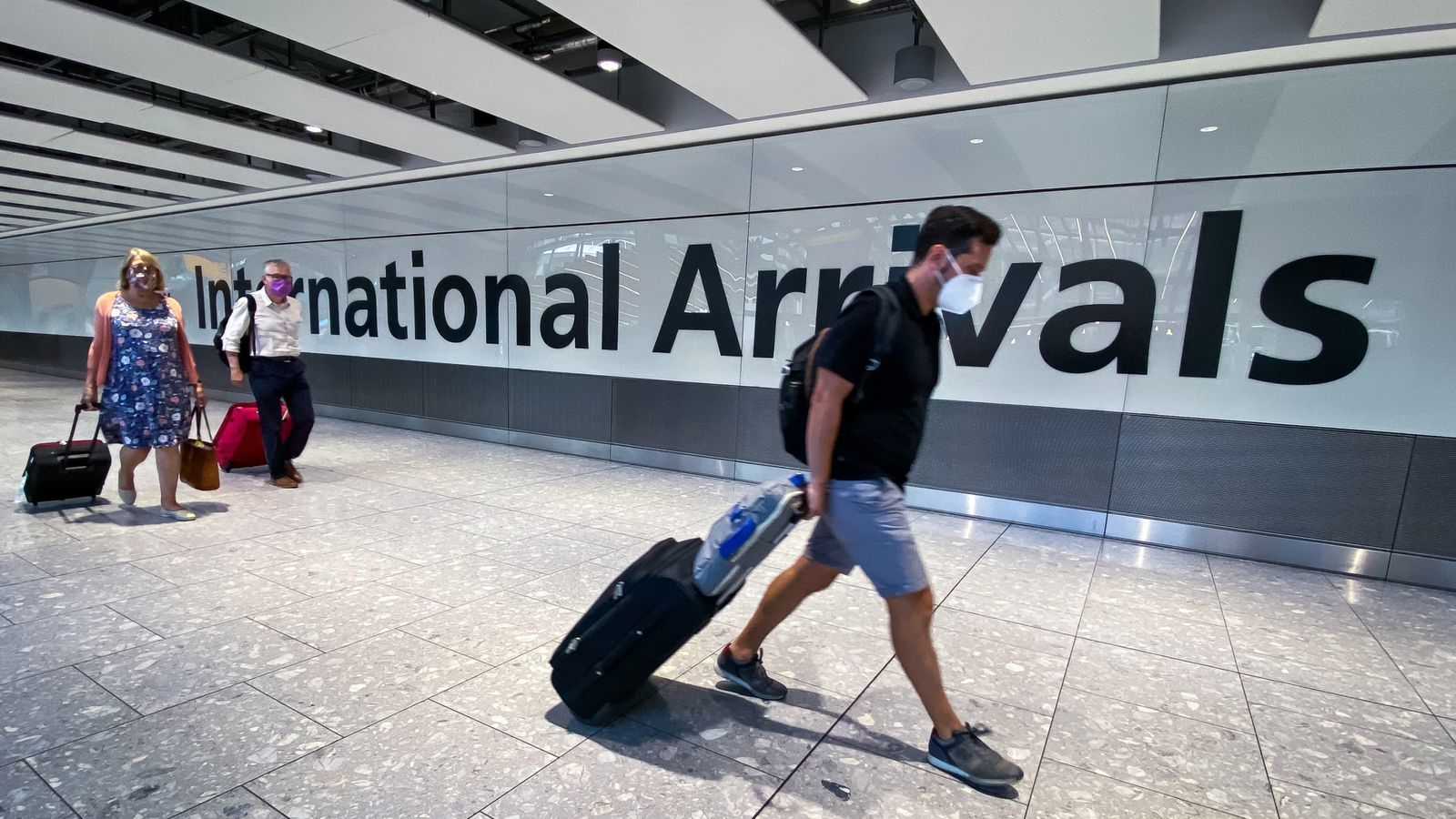
Strike vote shows British Airways still appears to have a Heathrow problem
"I've had plenty of luck over the last five years, all of it bad."
So said Sir Rod Eddington, former chief executive of British Airways, the man who steered the airline through the terrorist attacks of 11 September 2001 and an outbreak of the SARS virus 18 months later.
Sir Rod, an easy-going Australian who was liked by just about everyone in the industry, including BA's arch-rival Sir Richard Branson, was reflecting not on 9/11 but on an industrial dispute that afflicted BA just as he was preparing to step down in August 2005.
A strike at Gate Gourmet, a contract catering firm that supplied meals to BA, spilled over into the airline itself - costing it around £45m in cancelled flights.
The relevance of this episode, 17 years ago, is that it highlighted problems specific to BA at Heathrow - where the main staff unions had a reputation for being more militant than elsewhere around the country.
As Sir Rod noted at the time: "Ask yourself what's happened at Gatwick, where we have a very big union? At Birmingham and Manchester? Nothing."
To judge from today's vote by check-in staff, who are members of Unite, BA still appears to have a Heathrow problem.
The airline's comment today that its Heathrow-based employees had declined an offer that had been accepted by colleagues elsewhere across the network is eerily familiar to the remarks made by Sir Rod all those years ago.
To that can be overlaid the generally challenging industrial relations at BA - which are a legacy of its past as a state-owned industry.
Union membership is significantly higher in the public sector than in the private sector and it is no coincidence that it is companies that were once state-owned - like BA, Royal Mail and, to a lesser extent, BT - which tend to have worse industrial relations than most private companies.
Union representation among BA employees is significantly higher than competitors like Virgin Atlantic, Ryanair and EasyJet, which have always been in the private sector.
Sir Rod was not the first BA chief executive - and certainly not the last - to complain about a mentality among some employees that they still thought they were working for the government rather than a privately-owned company operating in a ferociously competitive market.
And that competition has intensified during the 35 years since BA was privatised. It first came from lower-cost short-haul carriers like Ryanair and Easyjet. That still left BA able to rely on highly profitable transatlantic routes where, for many years, its only meaningful competition was from Virgin Atlantic.
But in the last 10-15 years it has also found itself facing more serious competition on long haul routes, particularly in and out of Heathrow, from deep-pocketed carriers like Emirates.
Another factor is that disputes at Heathrow have a habit of flaring up out of nowhere. That is partly because, in the past, there has been competition among unions to sign up members.
That has led at times to unions adopting a more militant stance to prove to would-be recruits that they are capable of driving a harder bargain with the employer than other unions.
British Airways is not the only airline facing industrial action this summer

A classic of the genre here was an unofficial dispute which blew up in July 2003 - just as the summer holiday season was approaching its peak - when check-in and ticket desk staff walked out after BA introduced an automated swipe-card system.
Again, the system had been introduced by BA at other airports, but was resisted by Heathrow employees - with competition for members between the Transport & General Workers Union and Amicus (which later merged to form Unite) and the GMB union making the situation even more volatile. Unite and the GMB are the two unions at the centre of this latest dispute.
Now, it is worth noting that BA is not the only airline facing industrial action this summer. Even Ryanair and EasyJet, both of which have far better industrial relations than BA, are facing some stoppages in coming months.
And the unions can hardly be blamed for flexing their muscles in the middle of a tight labour market and a shortage of qualified workers - a shortage caused in part because the airlines, in order to cut costs at the height of the pandemic, arguably made more redundancies than they needed to.
But it does appear that BA still has more problems specific to it.
BA's parent company, International Airlines Group, appeared to recognise this when, after a particularly feisty industrial dispute during the pandemic involving proposed job losses among cabin crew on more generous legacy pension schemes, it showed the door to Alex Cruz, BA's former chief executive, whose name had become synonymous with cost-cutting.
In his place came the more amelioratory Sean Doyle who, very publicly, admitted BA had an urgent task in repairing the airline's public image.
He and the rest of BA's management will be bitterly disappointed that this row has flared up now - just as the business appeared to be getting back on its feet after two disastrous summers.











